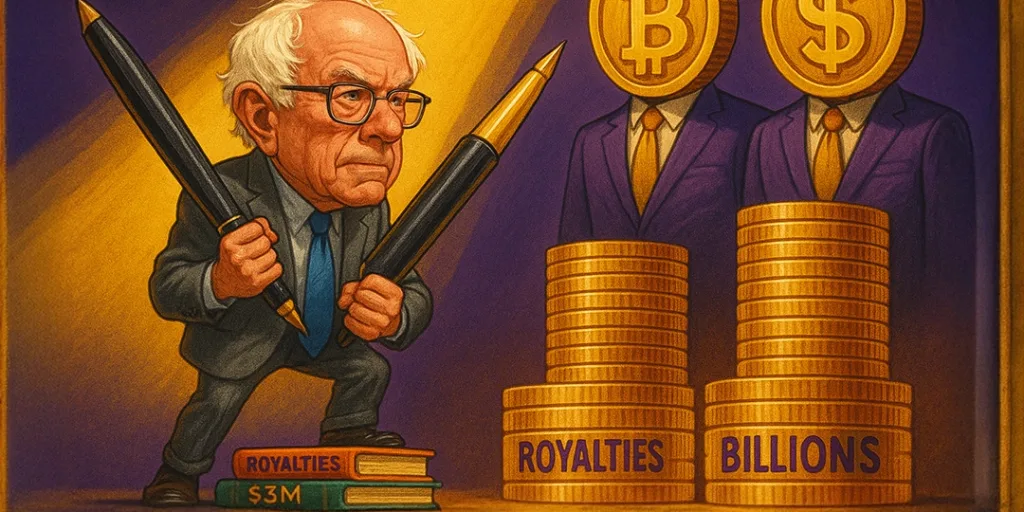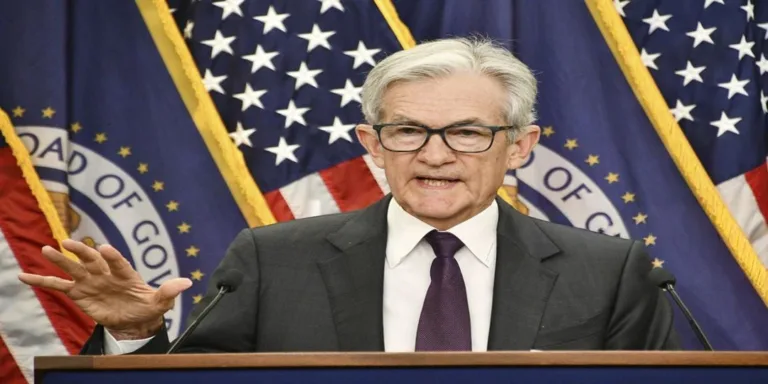Still curious about Bernie Sanders’ net worth? The answer isn’t shocking. The Vermont senator has built a fortune of about $3 million, mainly from book royalties, his Senate salary, pensions, and modest real estate holdings. His publishing career alone has earned him over $2.5 million since 2011, with peak years bringing in close to $850,000.
Compared to senators worth tens or even hundreds of millions, Sanders’ fortune looks modest. Yet, this very fact has become part of his brand, positioning him as a “millionaire outsider” who challenges wealth concentration.
Why Sanders sees crypto as a billionaire’s playground
Sanders doesn’t own crypto and has never pretended to be interested in it. While Bernie Sanders’ net worth is enough to make him a millionaire, it pales in comparison to the billions controlled by crypto moguls.
For Sanders, that contrast illustrates exactly what is wrong with the system. He views crypto not as a liberation tool for everyday people but as another arena where billionaires tighten their grip on financial power. To him, the crypto boom reflects the same inequality he has spent decades trying to reduce.

The GENIUS Act: Stablecoins, Trump, and regulation
This debate reached a climax in mid-2025. The GENIUS Act, a sweeping stablecoin regulation bill, cleared Congress and was signed into law by President Trump on July 18, 2025. The law forces stablecoins to be backed by dollars or other safe assets and restricts the Federal Reserve from launching its own digital currency.
Sanders was one of the most vocal critics of the bill. He argued it was a gift to Trump and his billionaire donors, saying it weakens consumer safeguards while giving crypto giants more power. He even hosted Senate roundtables to highlight the risks, earning support from progressive groups who branded the legislation a “sham designed by crypto billionaires.” For Sanders, the stakes weren’t abstract; they were about who benefits and who loses.
Bernie vs. the crypto class: A fight beyond net worth
A U.S. senator with modest millions is taking on an industry that prints billionaires overnight. But this isn’t about Bernie Sanders’ net worth alone; it’s about what he stands for, which is for working-class Americans.
By opposing the GENIUS Act, Sanders frames himself as a guardrail against policies that could funnel wealth upward. In his eyes, crypto’s biggest players look less like innovators and more like oligarchs in digital disguise.
And that’s why the fight matters. Sanders’ wealth doesn’t rival that of the people he’s calling out. But that’s the point. He stands on a platform built from book sales and pensions while throwing punches at policies that could swell the fortunes of a crypto class already sitting on mountains of money.
Final word
For the U.S. readers, watching crypto bootleg into the political arena hits home. It’s about who profits, who legislates, and why balance in Washington matters, even if your bank account isn’t flashing crypto-cash.
Bernie may not own Bitcoin, but his crypto policy stance shows he’s watching the industry like a hawk. And in that fight, regardless of net worth, he lands the punches.
Search Bernie Sanders’ net worth, and you’ll find a modest millionaire. Look closer, and you’ll see a senator using that modest fortune as proof that you don’t need billions to challenge the billionaires shaping the crypto world.












